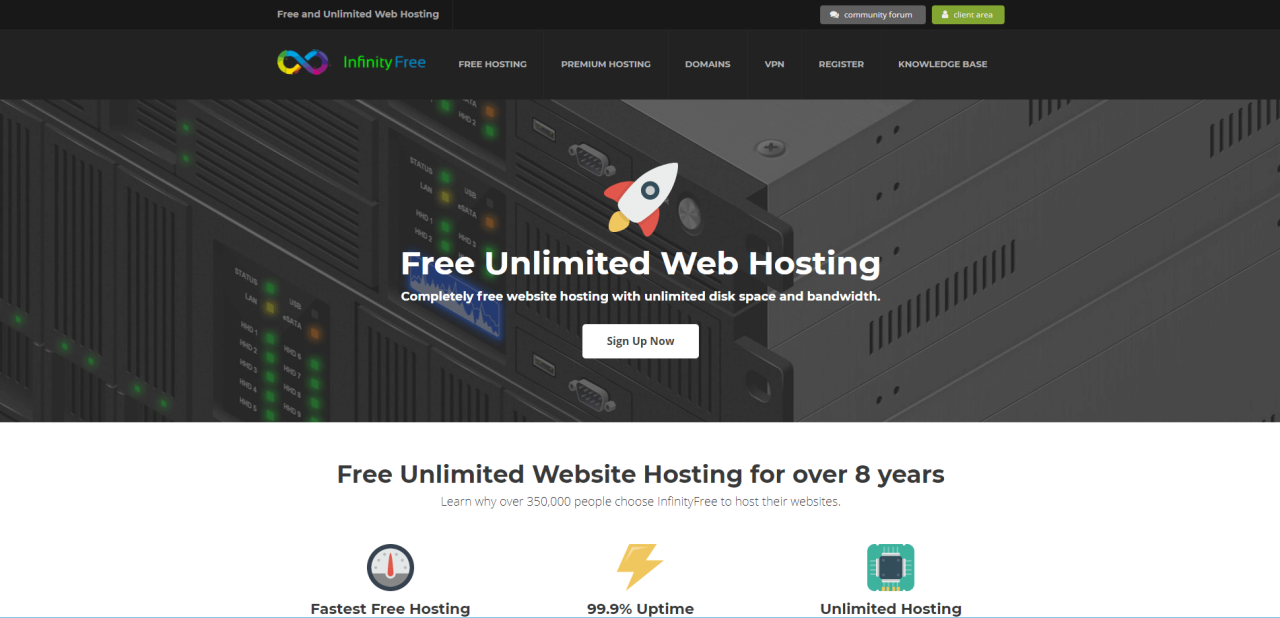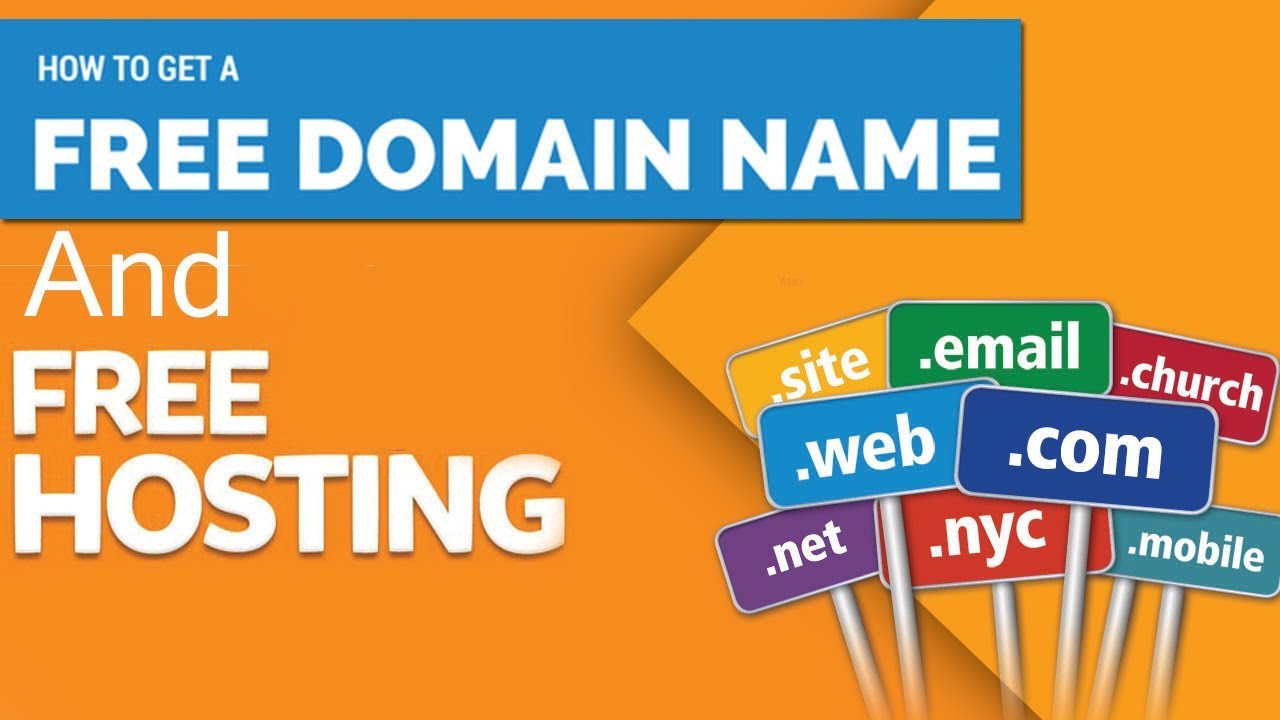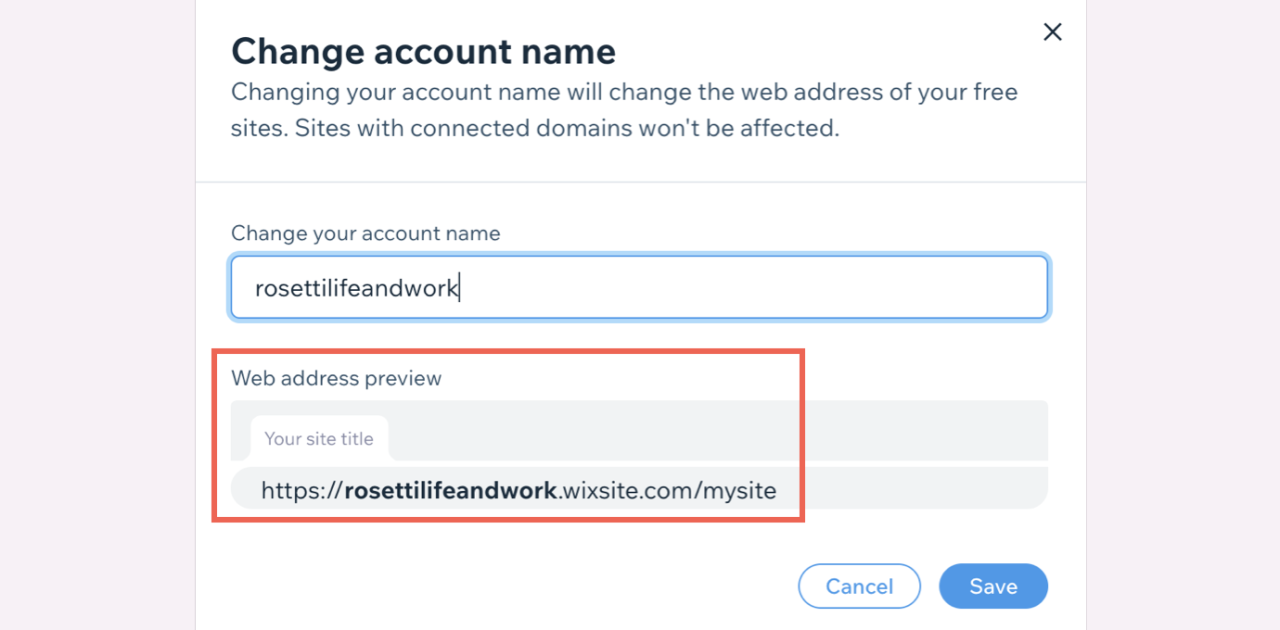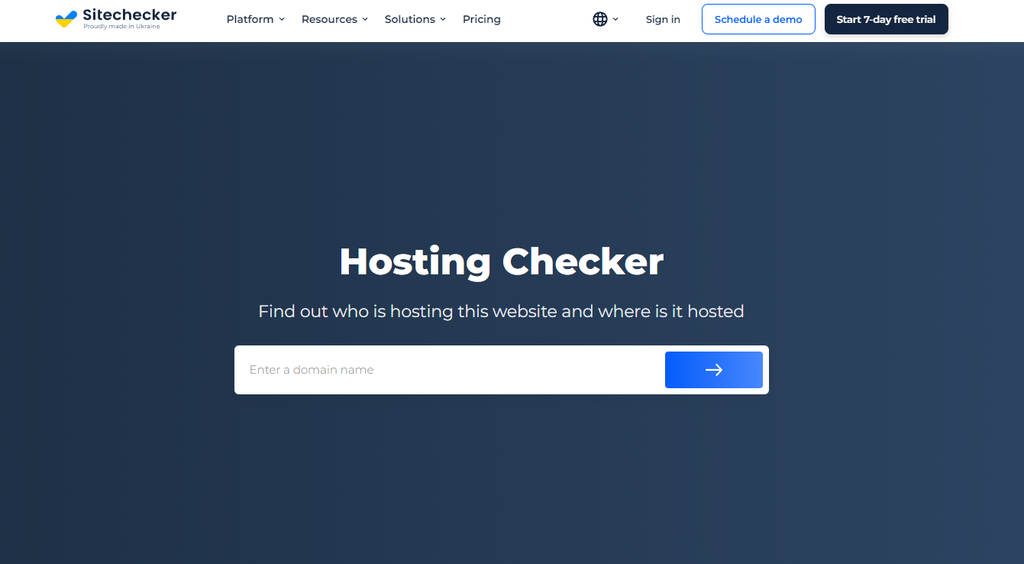Free website hosting and domain offer an enticing path to establishing an online presence without upfront costs. This approach, while seemingly attractive, comes with inherent limitations and considerations that every aspiring website owner should understand. This guide delves into the world of free hosting and domain services, exploring their intricacies, advantages, disadvantages, and potential pitfalls.
From understanding the technical aspects of how free hosting and domains function to navigating the complexities of choosing the right provider, this comprehensive overview aims to equip you with the knowledge needed to make informed decisions. We’ll also explore alternative options to free hosting, best practices for maximizing its potential, and real-world examples of successful websites built on free platforms.
Understanding Free Website Hosting and Domain
Free website hosting and domain services offer a cost-effective way to establish an online presence without upfront expenses. This approach provides an entry point for individuals and small businesses to experiment with web development and explore online opportunities. However, it’s crucial to understand the advantages and disadvantages associated with free hosting and domain services before making a decision.
Advantages of Free Website Hosting and Domain
Free website hosting and domain services offer several advantages, including:
- Cost-effectiveness: The most significant advantage of free hosting and domain services is their zero upfront cost. This eliminates the financial barrier for individuals and small businesses to start a website.
- Accessibility: Free services make website creation accessible to anyone with an internet connection, regardless of technical expertise or financial resources.
- Ease of Use: Many free hosting providers offer user-friendly interfaces and website builders, simplifying the process of creating and managing a website.
- Experimentation: Free hosting allows individuals and businesses to experiment with different website designs, content, and functionalities without financial risk.
Disadvantages of Free Website Hosting and Domain
While free website hosting and domain services offer advantages, they also have several limitations:
- Limited Features: Free hosting services often have restricted features, such as limited storage space, bandwidth, and email accounts. This can hinder website growth and functionality.
- Performance Issues: Free hosting services may experience slower loading times and unreliable performance due to shared resources and limited server capacity.
- Limited Control: Free hosting providers may impose restrictions on website content, design, and functionality. They might also display advertisements on your website.
- Security Concerns: Free hosting services may have less robust security measures, increasing the risk of data breaches and malware attacks.
- Lack of Support: Free hosting providers often offer limited or no customer support, making it challenging to resolve technical issues or get assistance.
Popular Free Website Hosting and Domain Providers
Several popular free website hosting and domain providers offer basic services:
- 000webhost: This provider offers free hosting with limited storage and bandwidth, along with a free domain name.
- Freehostia: Freehostia provides free hosting with limited resources and features. It also offers a free domain name with certain plans.
- AwardSpace: AwardSpace offers free hosting with limited features and storage space. It also provides a free domain name with specific plans.
- WordPress.com: WordPress.com offers a free plan with limited features and storage space. It also provides a free subdomain.
How Free Hosting and Domain Work: Free Website Hosting And Domain

Free website hosting and domain services provide a way to launch your website without upfront costs. However, understanding how they function is crucial to making informed decisions about your online presence.
Website Storage and Traffic Handling
Free hosting providers typically store your website files on their servers, which are powerful computers designed to handle large amounts of data. They use various technologies to ensure your website is accessible to visitors.
- Shared Hosting: This is the most common type of free hosting. Multiple websites share the same server resources, including processing power, memory, and storage. This can lead to performance issues if other websites on the server experience high traffic.
- Limited Bandwidth and Storage: Free hosting plans usually have limitations on the amount of data (bandwidth) your website can transfer and the storage space available. This can restrict the size of your website and the number of visitors you can handle.
- Traffic Management: Free hosting providers often implement measures to manage traffic, such as throttling or limiting the number of simultaneous connections. This can result in slow loading times or website downtime during peak traffic periods.
Revenue Models of Free Hosting Providers
Free hosting services generate revenue through various methods, often by monetizing their users:
- Advertising: Many free hosting providers display ads on websites hosted on their platform. These ads can be intrusive and affect the user experience, potentially driving visitors away.
- Upselling Paid Plans: Free hosting providers often offer paid plans with more features, resources, and support. They may entice users to upgrade by highlighting the limitations of free plans or offering special promotions.
- Data Collection and Analytics: Some free hosting providers collect user data, such as website traffic patterns and visitor demographics. This data can be valuable for targeted advertising and marketing purposes.
Security Risks of Free Hosting and Domain Services
While free hosting can be a convenient option, it comes with certain security risks:
- Shared Security: As multiple websites share the same server, a security breach on one website can potentially affect others. This can lead to data leaks, malware infections, or website defacement.
- Limited Security Features: Free hosting plans often have limited security features, such as firewalls, anti-virus software, and intrusion detection systems. This can make your website more vulnerable to attacks.
- Domain Registration Issues: Free domains provided by hosting providers may have limited functionality or be subject to specific terms and conditions. They may also be less secure than domains registered through reputable domain registrars.
Choosing the Right Free Hosting and Domain Provider
Selecting the right free hosting and domain provider is crucial for launching your website without breaking the bank. While free options offer an attractive entry point, they often come with limitations that can hinder your website’s growth and performance. To make an informed decision, consider several key factors.
Factors to Consider
- Website Traffic: Free hosting providers typically have bandwidth limitations, which restrict the amount of data your website can handle. If you anticipate significant traffic, a free plan may not be sufficient.
- Storage Space: Free hosting plans often offer limited storage space, which can restrict the size of your website files, including images, videos, and documents.
- Features: Evaluate the features offered by different providers, such as website builders, email accounts, and security measures. Some free providers offer more features than others.
- Customer Support: Free hosting providers may have limited or non-existent customer support. Consider the level of support you require, especially if you’re new to website development.
Comparing Free Hosting Providers
Here’s a table comparing the features and pricing of popular free hosting providers:
| Provider | Website Builder | Storage | Bandwidth | Domain Name | Pricing |
|---|---|---|---|---|---|
| Freehostia | Yes | 100 MB | 1 GB | Free subdomain | Free |
| 000Webhost | Yes | 1 GB | 10 GB | Free subdomain | Free |
| ByetHost | Yes | 500 MB | 5 GB | Free subdomain | Free |
| AwardSpace | Yes | 1 GB | 10 GB | Free subdomain | Free |
Building a Website with Free Hosting and Domain
Building a website with free hosting and domain services is a great way to get started with your online presence without incurring significant costs. While these services offer valuable tools and resources, it’s essential to understand their limitations and how to maximize their potential. This section will guide you through the process of building a website using a free hosting and domain provider, from account creation to website design and content management.
Creating an Account and Choosing a Domain Name
The first step is to create an account with a free hosting and domain provider. This usually involves providing basic information like your name, email address, and desired username. Once you have an account, you can choose a domain name for your website. A domain name is the address of your website on the internet, such as example.com.
Here are some tips for choosing a domain name:
- Keep it short and memorable.
- Use relevant s that describe your website’s content.
- Check for availability before registering.
- Consider using a domain name extension that is appropriate for your website’s purpose, such as .com, .org, or .net.
Website Building Tools
Free hosting providers often offer a variety of website building tools to help you create your website without coding knowledge. These tools can range from simple drag-and-drop website builders to more advanced content management systems (CMS).
Here are some popular website building tools available with free hosting services:
- Website Builders: These tools provide a user-friendly interface for creating a website without coding. You can choose from pre-designed templates and customize them to your liking. Popular examples include Wix, Weebly, and Squarespace.
- Content Management Systems (CMS): CMS platforms allow you to manage your website’s content easily. They provide a structured framework for organizing your pages, posts, and media. Popular examples include WordPress, Joomla, and Drupal.
Designing Your Website
Once you have chosen your website building tool, you can start designing your website. This involves selecting a template or theme, adding content, and customizing the overall look and feel.
Here are some tips for designing a website:
- Keep it simple and clean: A cluttered website can be overwhelming for visitors. Focus on creating a clear and easy-to-navigate layout.
- Use high-quality images and videos: Visual content can enhance your website’s appeal and engagement.
- Optimize for mobile devices: With the increasing use of smartphones and tablets, it’s essential to ensure your website is responsive and looks good on all devices.
- Choose a color scheme that reflects your brand: Colors can evoke emotions and create a certain mood. Select colors that are consistent with your brand’s identity.
Managing Your Website Content
Content is king when it comes to website success. It’s important to create high-quality content that is relevant to your target audience and engages them.
Here are some tips for managing your website content:
- Write clear and concise content: Use simple language and avoid jargon.
- Optimize your content for search engines: Use relevant s and phrases to help people find your website.
- Update your content regularly: Fresh content keeps visitors coming back.
- Engage with your audience: Respond to comments and questions.
Optimizing Your Website for Speed and Performance, Free website hosting and domain
A slow website can frustrate visitors and lead to higher bounce rates. It’s essential to optimize your website for speed and performance.
Here are some tips for optimizing your website:
- Use a fast and reliable hosting provider: Free hosting services may have limited resources, which can impact your website’s speed.
- Optimize your images: Compress images to reduce their file size without compromising quality.
- Minimize HTTP requests: Reduce the number of files that need to be loaded on your website.
- Use a content delivery network (CDN): A CDN can help deliver your website’s content faster to visitors around the world.
Optimizing Your Website for Search Engine Visibility
Search engine optimization () is the process of improving your website’s ranking in search engine results pages (SERPs).
Here are some tips for optimizing your website for :
- Use relevant s in your content: Research s that your target audience is using to find information related to your website.
- Build high-quality backlinks: Backlinks from other websites can help improve your website’s authority and ranking.
- Submit your website to search engines: Make sure your website is indexed by search engines like Google and Bing.
- Use social media to promote your website: Share your website’s content on social media platforms to increase visibility.
Limitations of Free Hosting and Domain

While free hosting and domain services offer a convenient starting point for website creation, they come with certain limitations that can impact your website’s performance, user experience, and growth potential. Understanding these limitations is crucial before choosing a free hosting provider.
Restricted Features
Free hosting providers often restrict the features available to users. This means you might not have access to advanced functionalities like:
- Email accounts: Most free hosting providers do not offer email accounts associated with your domain. This can be a major inconvenience for businesses and individuals who need professional email addresses.
- Databases: Some free hosting services may not support databases, which are essential for websites that require dynamic content, such as e-commerce platforms or forums.
- Security features: Free hosting providers might not offer robust security features, leaving your website vulnerable to attacks and data breaches. This can lead to downtime, data loss, and reputational damage.
- Advanced scripting languages: Free hosting plans often limit or restrict the use of advanced scripting languages like PHP or Python, which are crucial for developing complex web applications.
Bandwidth Limitations
Free hosting plans typically come with limited bandwidth, which refers to the amount of data that can be transferred between your website and visitors. This can significantly impact your website’s performance, especially if you experience high traffic.
- Slow loading times: Limited bandwidth can result in slow loading times for your website, leading to frustrated users and a negative impact on search engine rankings. Google prioritizes websites that load quickly, so slow loading times can hurt your website’s visibility.
- Website downtime: If your website exceeds its bandwidth limit, it may become inaccessible to visitors, leading to lost opportunities and potential revenue. This can be especially detrimental for businesses that rely on their website for customer interaction.
Advertising Requirements
Many free hosting providers require you to display advertisements on your website, which can be intrusive and detract from the user experience. These ads can be:
- Unrelated to your website’s content: Ads that are not relevant to your website’s content can be distracting and annoying for visitors, potentially driving them away.
- Visually disruptive: Advertisements can take up valuable screen space, making it difficult for visitors to navigate your website and find the information they are looking for.
- Potentially harmful: Some free hosting providers may display advertisements from untrusted sources, which could expose your visitors to malware or phishing scams.
Impact on Website Performance and User Experience
The limitations imposed by free hosting services can have a significant impact on your website’s performance and user experience.
- Slow loading times: Limited bandwidth and server resources can result in slow loading times, leading to a poor user experience and potentially driving visitors away.
- Limited functionality: Restricted features can limit your website’s functionality, making it difficult to implement advanced features or create a truly engaging user experience.
- Compromised security: Lack of robust security features can leave your website vulnerable to attacks, potentially leading to data breaches, downtime, and reputational damage.
- Invasive advertising: Advertisements displayed on free hosting platforms can be intrusive and detract from the user experience, potentially driving visitors away.
Scenarios Where Free Hosting is Not Suitable
Free hosting is not suitable for all websites, particularly those with specific requirements or goals.
- Businesses and organizations: Businesses and organizations that rely on their website for customer interaction, lead generation, or online sales require reliable hosting with sufficient resources and security features.
- Websites with high traffic: Websites that experience high traffic volumes need a hosting plan with ample bandwidth and server resources to ensure optimal performance and avoid downtime.
- Websites requiring advanced features: Websites that require advanced features, such as e-commerce functionality, databases, or complex scripting languages, will need a hosting plan that supports these features.
- Websites with sensitive data: Websites that handle sensitive data, such as personal information or financial transactions, require robust security features and dedicated hosting plans.
Alternatives to Free Hosting and Domain
While free hosting and domain services offer a great starting point for building a website, they often come with limitations that can hinder growth and scalability. As your website gains traction and you require more features and resources, it’s essential to consider alternative options.
This section explores alternative options to free hosting and domain services, including paid hosting plans, shared hosting, and cloud hosting, comparing their costs, features, and benefits. It also discusses the advantages of upgrading to paid hosting services as your website expands.
Paid Hosting Plans
Paid hosting plans offer a wide range of features and resources that can significantly enhance your website’s performance and capabilities.
These plans provide more storage space, bandwidth, and processing power, ensuring your website can handle increased traffic and complex functionalities.
Paid hosting plans also offer advanced features such as:
* Improved security: Paid hosting providers invest heavily in security measures, such as firewalls, malware scanning, and regular backups, to protect your website from threats.
* Enhanced support: You can access dedicated customer support, often available 24/7, to assist you with any technical issues or questions.
* Scalability: Paid hosting plans offer flexible scaling options, allowing you to adjust your resources as your website grows.
* Domain privacy: Paid hosting plans often include domain privacy protection, hiding your personal information from public records.
* Advanced features: You can access advanced features like SSL certificates, email accounts, and website analytics tools.
Shared Hosting
Shared hosting is a popular and cost-effective option for websites with moderate traffic and resource requirements. In shared hosting, multiple websites share the same server resources, including CPU, RAM, and disk space.
This shared environment can be beneficial for small businesses or personal websites that don’t require significant resources.
Here are some key aspects of shared hosting:
* Cost-effective: Shared hosting is generally the most affordable hosting option, making it ideal for budget-conscious website owners.
* Easy to manage: Shared hosting providers often offer user-friendly control panels that simplify website management.
* Suitable for beginners: Shared hosting is a good starting point for beginners who are new to website hosting.
* Limited resources: The shared nature of the environment can lead to performance issues if other websites on the server experience high traffic.
* Security risks: Shared hosting can pose security risks if other websites on the server are compromised.
Cloud Hosting
Cloud hosting provides a more scalable and flexible hosting solution, utilizing a network of servers to distribute website resources. This approach allows websites to handle large traffic spikes and complex functionalities without performance degradation.
Cloud hosting offers several advantages over traditional hosting methods:
* Scalability: Cloud hosting allows you to easily scale your resources up or down based on your website’s needs.
* High availability: Cloud hosting ensures high website uptime by distributing resources across multiple servers.
* Enhanced security: Cloud hosting providers invest in robust security measures to protect your website from threats.
* Cost-effective: Cloud hosting can be cost-effective in the long run, as you only pay for the resources you use.
* Flexibility: Cloud hosting provides flexibility in choosing operating systems, programming languages, and databases.
Benefits of Upgrading to Paid Hosting
Upgrading to paid hosting services can bring numerous benefits as your website grows:
* Improved performance: Paid hosting plans offer more resources, leading to faster loading times and better user experience.
* Enhanced security: Paid hosting providers invest in robust security measures, protecting your website from threats.
* Increased reliability: Paid hosting plans offer higher uptime and stability, ensuring your website is always available to visitors.
* Access to advanced features: Paid hosting plans provide advanced features like SSL certificates, email accounts, and website analytics tools.
* Dedicated support: You can access dedicated customer support, often available 24/7, to assist you with any technical issues or questions.
Best Practices for Using Free Hosting and Domain

While free hosting and domain services offer a convenient starting point for building an online presence, it’s crucial to understand that they come with limitations. By following best practices, you can maximize their potential and create a successful website even with limited resources.
Website Optimization
Optimizing your website for performance and user experience is crucial, especially when using free hosting.
- Choose a lightweight theme: Opt for a simple, clean design that loads quickly. Avoid themes with excessive animations or large images, as they can slow down your website.
- Compress images: Optimize your images for web use by reducing their file size without compromising quality. Tools like TinyPNG and Optimizilla can help with this.
- Minimize plugins: Use only essential plugins, as too many can impact performance. Regularly check for outdated or unnecessary plugins and remove them.
- Enable caching: Caching stores copies of your website’s content, allowing it to load faster for visitors. Most free hosting platforms offer caching options.
Content Creation
- Focus on high-quality content: Create engaging, informative, and valuable content that resonates with your target audience. This is crucial for attracting visitors and building a loyal following.
- Use relevant s: Research and incorporate relevant s into your website’s content to improve its visibility in search engines. This helps potential customers find your website.
- Update your content regularly: Fresh, updated content keeps visitors engaged and helps your website rank higher in search results. Aim to post new content consistently.
- Promote your content: Share your website’s content on social media, forums, and other online platforms to reach a wider audience. This helps drive traffic to your website.
User Engagement
- Encourage interaction: Include features like comments sections, contact forms, and social media sharing buttons to encourage visitors to interact with your website. This fosters a sense of community and keeps visitors engaged.
- Offer valuable resources: Provide useful information, tutorials, or guides related to your website’s topic. This attracts visitors and positions you as an authority in your field.
- Respond to comments and feedback: Engage with your visitors by responding to their comments and questions. This shows you value their input and builds trust.
- Track website analytics: Use tools like Google Analytics to monitor your website’s traffic, user behavior, and other key metrics. This data helps you understand what’s working and what needs improvement.
Managing Website Traffic
- Monitor your traffic: Use analytics tools to track your website’s traffic patterns and identify peak hours. This helps you understand when your website is most active and plan your content accordingly.
- Optimize for mobile devices: Ensure your website is responsive and accessible on all devices, as mobile traffic is increasing rapidly. This improves user experience and helps your website rank higher in search results.
- Use social media effectively: Promote your website and content on social media platforms to drive traffic. Engage with your followers and build a community around your brand.
Website Security
- Choose a reputable provider: Select a free hosting provider with a strong reputation for security and reliability. Research their security measures and customer reviews.
- Use strong passwords: Create unique and complex passwords for your website’s admin area and any other accounts associated with your website. This protects your website from unauthorized access.
- Keep your software updated: Regularly update your website’s software, including WordPress, themes, and plugins. Updates often include security patches that protect against vulnerabilities.
Website Backups
- Create regular backups: Free hosting providers may not offer automatic backups, so it’s essential to create your own. Use a plugin like UpdraftPlus to back up your website’s files and database regularly.
- Store backups off-site: Store your backups in a secure location outside of your website’s hosting environment. This ensures your website’s data is safe even if your hosting provider experiences problems.
- Test your backups: Regularly test your backups to ensure they’re working properly and can restore your website if needed. This helps you identify any issues and address them before a disaster strikes.
Building a Sustainable Online Presence
- Focus on long-term growth: While free hosting and domain services can help you get started, consider upgrading to a paid plan as your website grows. This provides more resources, features, and security.
- Build relationships with your audience: Engage with your visitors, respond to their comments, and build a community around your website. This helps foster loyalty and encourages repeat visits.
- Stay informed about industry trends: Keep up with the latest trends in website design, content marketing, and online business. This helps you adapt to changing technologies and stay ahead of the competition.
Real-World Examples of Free Hosting and Domain Usage
While free hosting and domain services come with limitations, they can be valuable tools for individuals and small businesses looking to establish an online presence with minimal upfront investment. Several successful websites have leveraged free platforms to achieve their goals, demonstrating that it’s possible to overcome limitations and build a thriving online presence.
Examples of Successful Websites Using Free Hosting and Domain
The following are examples of websites that have successfully utilized free hosting and domain services, showcasing the potential for growth and monetization even within the constraints of free platforms.
- Personal Blogs and Portfolios: Many individuals use free hosting and domain services to create personal blogs or portfolios to showcase their writing, photography, or other creative work. These websites often serve as online resumes or platforms for sharing personal experiences and insights. By building a loyal audience through engaging content and consistent updates, bloggers can monetize their websites through advertising, affiliate marketing, or selling digital products.
- Non-Profit Organizations and Advocacy Groups: Free hosting and domain services are often utilized by non-profit organizations and advocacy groups to establish an online presence and raise awareness about their cause. These websites typically provide information about the organization’s mission, activities, and fundraising efforts. By leveraging social media and email marketing, these organizations can reach a wider audience and attract supporters.
- Small Business Landing Pages: Some small businesses use free hosting and domain services to create landing pages for specific products or services. These landing pages can be used to capture leads, promote special offers, or direct visitors to the business’s main website. By using a free platform, businesses can test different marketing strategies and measure their effectiveness before investing in more expensive hosting solutions.
Future Trends in Free Hosting and Domain
The world of free website hosting and domain services is constantly evolving, driven by technological advancements and changing user needs. Several emerging trends are shaping the future of this landscape, impacting how website owners build, manage, and monetize their online presence.
Increased Security Features
As cyber threats become more sophisticated, free hosting providers are prioritizing security features to protect their users.
- Advanced Firewall Protection: Free hosting platforms are increasingly incorporating robust firewalls to block malicious traffic and prevent unauthorized access to websites.
- Regular Security Updates: To counter emerging vulnerabilities, providers are implementing regular security updates for their software and infrastructure.
- SSL Certificates: Free hosting services are now offering free SSL certificates, enabling website owners to encrypt data transmission and enhance user trust.
These measures not only safeguard website data but also contribute to improved search engine rankings, as Google prioritizes secure websites.
New Monetization Models
Free hosting providers are exploring innovative ways to generate revenue while maintaining their free tier offerings.
- Targeted Advertising: Displaying targeted ads on free websites is a common monetization strategy. Providers leverage user data to deliver relevant ads, maximizing click-through rates and revenue.
- Freemium Model: This model offers a free basic plan with limited features, while premium plans with enhanced capabilities come at a cost. This approach allows providers to cater to diverse user needs and generate revenue from those seeking advanced features.
- Data Analytics and Insights: Some providers are leveraging user data to provide insights and analytics, which can be valuable for website owners. This data-driven approach helps website owners understand their audience and optimize their online presence.
By diversifying their revenue streams, free hosting providers can sustain their free offerings and continue to provide value to website owners.
Rise of Website Builders
Website builders have gained significant popularity, simplifying the process of creating and managing websites, even for those without technical expertise.
- Drag-and-Drop Interface: Website builders offer user-friendly drag-and-drop interfaces, allowing users to create visually appealing websites without coding knowledge.
- Pre-Designed Templates: A wide range of pre-designed templates cater to different website needs, from personal blogs to e-commerce stores. Users can easily customize these templates to reflect their brand identity.
- Integrated Hosting and Domain: Many website builders include free hosting and domain registration, simplifying the website setup process.
The integration of website builders with free hosting services is streamlining the website creation process and empowering a broader audience to establish their online presence.
The Future of Free Hosting
Free hosting is likely to remain a crucial part of the digital landscape, offering an accessible entry point for individuals and businesses seeking to establish their online presence.
- Enhanced Features and Functionality: Free hosting services will continue to improve their features and functionality, offering more robust capabilities to compete with paid hosting options.
- Focus on Niche Markets: Free hosting providers may specialize in specific niches, such as blogging, portfolio websites, or small business websites, tailoring their offerings to meet the unique needs of these target audiences.
- Integration with Other Tools: Free hosting services will likely integrate with other tools and platforms, such as social media, email marketing, and analytics, creating a more comprehensive and user-friendly experience for website owners.
While free hosting will continue to play a significant role, it’s crucial to remember that it often comes with limitations, such as restricted storage space, bandwidth, and features. Website owners should carefully consider their needs and explore alternative options, such as paid hosting plans, as their website grows and their requirements evolve.
Closing Summary
The journey to building a successful website begins with understanding the available options and their implications. While free hosting and domain services offer an attractive starting point, they are not a one-size-fits-all solution. As your website grows and your needs evolve, consider the potential benefits of transitioning to paid hosting plans to unlock enhanced features, performance, and security. By carefully navigating the landscape of free and paid hosting options, you can build a robust and thriving online presence that aligns with your goals and aspirations.
Free website hosting and domain names are great for starting a blog or portfolio, but sometimes you need a creative outlet. If you’re looking for a fun and easy craft project, check out 8 easy paper flowers. Once you’re done crafting, you can use your new website to showcase your creations and even sell them online!




